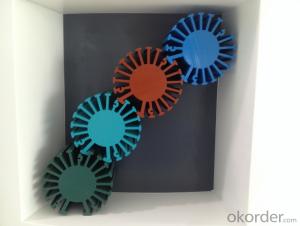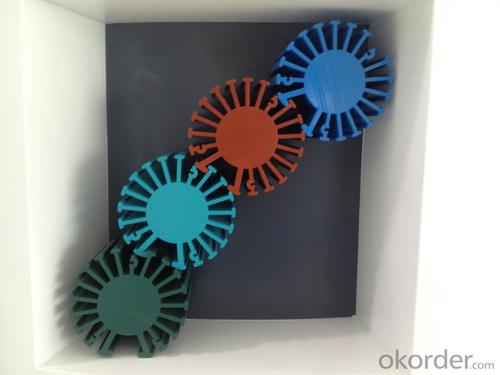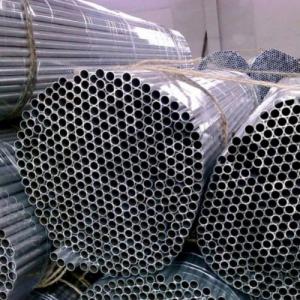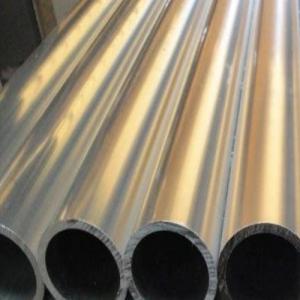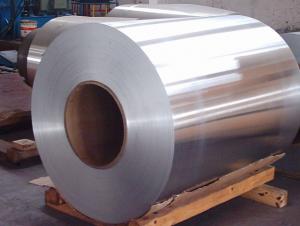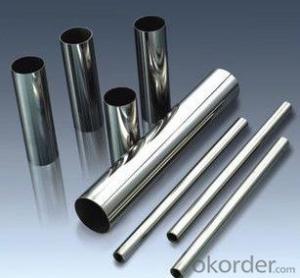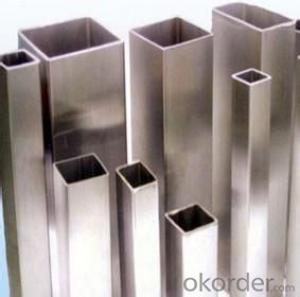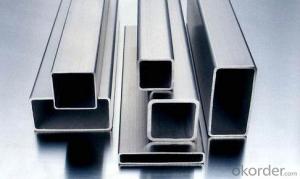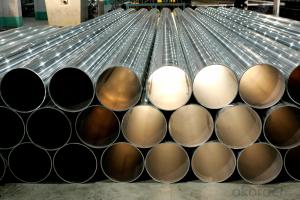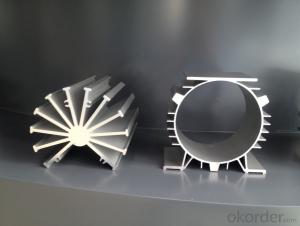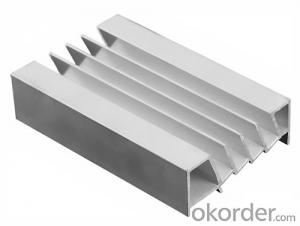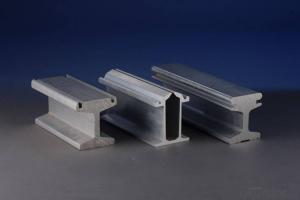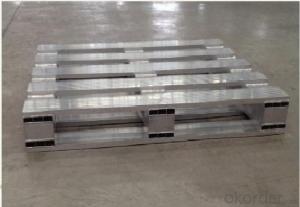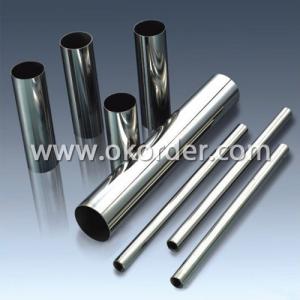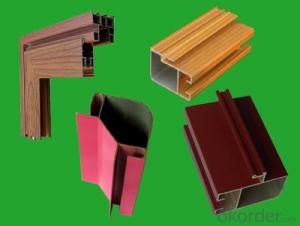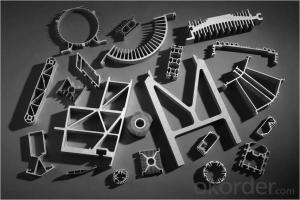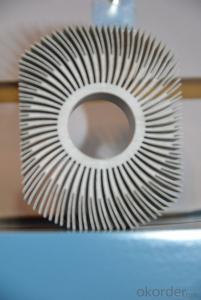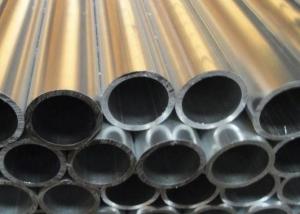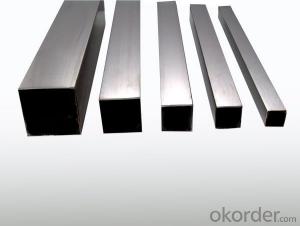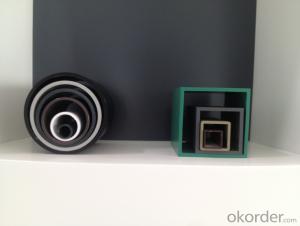Aluminum Cooler Aluminum Pipes
- Loading Port:
- Dalian
- Payment Terms:
- TT OR LC
- Min Order Qty:
- -
- Supply Capability:
- 3000T pc/month
OKorder Service Pledge
OKorder Financial Service
You Might Also Like
We are the largest aluminum profilemanufacture in
We can provide such heat sink as belows:
Material | Alloy Aluminum 6063,6061,6005,6082 or customer nominated |
Temper | T3, T4, T5, T6 and other |
Surface | Anodize, electrophoresis, powder coating, PVDF coating, etc. |
Colour | Any colour based on Standard Germany RAL Mark |
Length | According to the drawings |
Good Package | Inner plastic film /outside carton/wooden pallets |
Payment Method | T/T, L/C, etc |
Delivery Time | Normally 2-4 weeks, Delivery time can be consulted. |
Press Machine | 500-12500 tons all together 93 press lines. |
Fabrication | 1. Hest sink 2. Drilling; 3. Bending; 4. Cutting; 5. etc. |
Certificate | ISO/TS 16949,DNV,IRIS,CCS,AFA,etc. |
Dies | 1. Using our dies, no fee; |
2. Using customer drawing, opening dies, usually about 5~50 tons then the dies cost can be refunded. | |
3. Die cost is negotiable base on the order quantity | |
Capability | Annual output 800,000 tons |
- Q: 6063, how to prevent cracking aluminum tube, variant manual bending machine bending machine bending, what should pay attention to?No one knows?
- 6063, aluminum tube plasticity is very good, if you want to bend, it is recommended to return the fire, reduce the hardness, bending after quenching, bend pipe bend can be.
- Q: Can aluminum pipes be welded?
- Yes, aluminum pipes can be welded. Aluminum is a highly weldable material and can be easily joined together using various welding processes such as Tungsten Inert Gas (TIG) welding, Metal Inert Gas (MIG) welding, and even oxy-acetylene welding. However, it is important to note that welding aluminum requires specific techniques and considerations due to its unique properties. For instance, aluminum has a higher thermal conductivity and lower melting point compared to other metals, so it requires more heat control during the welding process. Additionally, aluminum forms an oxide layer when exposed to air, which can hinder the welding process. Therefore, proper cleaning and preparation of the aluminum surface is crucial before welding to ensure a strong and sound weld joint.
- Q: How do aluminum pipes handle vibration and shock loads?
- The remarkable ability of aluminum pipes to handle vibration and shock loads is widely recognized. This can be attributed mainly to their inherent characteristics and properties. Being a lightweight and highly ductile metal, aluminum possesses the unique capability to deform under stress without fracturing. This flexibility allows aluminum pipes to effectively absorb and dissipate vibrations and shocks, preventing their transmission to other components of the system. Furthermore, aluminum boasts a high strength-to-weight ratio, endowing it with great durability and resilience. Consequently, aluminum pipes can withstand significant impact forces and sudden shocks without deforming or failing. This exceptional strength makes aluminum pipes an ideal choice for applications in industries such as automotive and aerospace, where vibration and shock loads are anticipated. Notably, aluminum exhibits excellent resistance to corrosion, rendering it suitable for usage in diverse environments. Corrosion can weaken pipes, making them more susceptible to failure under vibration and shock loads. However, the corrosion resistance properties of aluminum ensure the structural integrity of the pipes remains intact over extended periods, enabling them to withstand such loads. In summary, aluminum pipes possess the necessary attributes to handle vibration and shock loads effectively. Their lightweight nature, ductility, high strength-to-weight ratio, and corrosion resistance make them a dependable choice for applications where these loads are a concern. As a result, aluminum pipes offer durability and longevity to the systems in which they are employed.
- Q: What's the difference between an air conditioned pure copper tube and an aluminum tube?
- The copper tube has high heat transfer efficiency, corrosion resistance and good strength, but the price is expensive.The heat transfer efficiency of aluminum pipe is higher, the corrosion resistance is not good, but the price is much cheaper.
- Q: What are the so-called "aluminum tubes" and "copper aluminum tubes" in air conditioners? Is it the pipe in the outer machine, or the connecting pipe between the outside machine and the inner machine?What materials are used in general external machines? For example, Panasonic, Midea, GREE, Haier, Changhong, CHIGO, Galanz, what are these materials used?
- The so-called "aluminum tube" in the air conditioner refers to the inner and outer parts of the air conditioner. The connecting pipe part may be made of aluminium tube, that is, the copper aluminum tube. And there are very other manufacturers using aluminum tubes on the evaporator or condenser.In the air-conditioning on the implementation of "aluminum instead of copper", there have been countless tests, the conclusion proved to be failure, it is impossible, is not reliable. In the air conditioning on aluminum and copper, can save the cost to a certain extent, reduce the price of air conditioner; however, all of this must be based on the safe operation of air conditioning, the service life of the air conditioner is not affected as the premise, without this premise, aluminum and copper also have no meaning.So far, no air-conditioning manufacturer's "aluminum bronze" project is successful; even more incredible is that there are still new manufacturers continue to join the promotion of this project.Aluminum and copper project, at the earliest in about 18 years ago, from the beginning of the refrigerator manufacturers, the refrigerator using R12 as refrigerant, and the whole system pressure is low, the particularity and the refrigerator pipeline application, does have a certain application in the refrigerator; from about 12 years ago at the beginning of each air conditioner to promote manufacturers Aluminum and copper in air conditioning project.
- Q: Seamed tubes and seamless tubes under which good?
- A pipe is better than pressure welded aluminum tube, seamless aluminium pipe texture is relatively uniform, there will be a small amount of loss in the part of the chemical composition of weld, so the mechanical properties of poor and seamless, but not big difference.Two, if the elbow pipe would recommend the use of seamless pipe, easy to crack, the bending radius is large enough no problem, that is because although there is high frequency welded pipe welding seam, but it is a composite aluminum tube, which is composed of Aluminum Alloy material more than 2, its surface layer for brazing layer.Three, aluminum tube refers to the use of pure aluminum or aluminum alloy extrusion processing into its longitudinal length of hollow metal tubular material. There may be one or more closed through holes with uniform wall thickness and cross section to be delivered in a straight or coiled form. Widely used in automobiles, ships, aerospace, aviation, electrical appliances, agriculture, machinery and electrical, home and other industries.1, according to the shape of: square tube, round tube, pattern tube, special-shaped tube;2, according to extrusion method: seamless aluminum tube and ordinary extrusion pipe;3, according to precision points: ordinary aluminum tube and precision aluminum tube, in which the precision aluminum tube generally needs to be processed after extrusion, such as cold drawn, fine drawn, rolling;4, according to thickness points: ordinary aluminum tube and thin-walled aluminum tube.Four: Performance: corrosion resistance, light weight.Five, aluminum tubes are widely used in all walks of life, such as: automobiles, ships, aerospace, aviation, electrical appliances, agriculture, electrical and mechanical, home, etc., aluminum pipe in daily life has been everywhere.
- Q: Aluminum seamless aluminium oxidation welding line how to do?
- That is not possible without welding line, welding line itself is seamed with the largest seamless two kinds of pipe difference! I suggest you confirm, you see the line, if indeed the welding line, or whether the processing or other processes may be bad
- Q: It's been a long time. Isn't it hard? 20The material is 6061 aluminum tube. The outer diameter is 76, the wall thickness is 1.5mm. Can it be used to bend the pipe? Is it easy to crack? What aluminum can I do if I can't bend it? Urgently!!!
- Hello! You said aluminum pipe bender can be used, but you should pay attention to when choosing the bending radius, should choose a slightly larger bending radius, if it is with a mandrel pipe bender is the same, but also pay attention to core material, because aluminum is more soft, if you should bend tubes, but also the bending of aluminum profiles, suggest that you look at Italy no mandrel bending machine, which can be Wanguanzi, can also bend and profile steel, you search the Internet!
- Q: What areas can 7075 aluminum tubes be used in?
- The static fatigue notch sensitivity, physical characteristics are better than the mechanical properties of 7A04.[1] stress corrosion resistance of 7075 aluminum plate and the mechanical properties of tensile strength 524Mpa, elongation of 11% 455Mpa: 0.2% yield strength, E/Gpa:71 elastic modulus, hardness 150HB, density: the main use of 2810.7075 aluminum plate: aerospace industry (bottle), blow mold, ultrasonic plastic welding molds, Gao Er golf head, shoe mold, paper mould, foaming molding, lost wax mold, template, fixtures, machinery and equipment, mold processing. 7075 features: 1. high strength aluminum alloy heat treatment. 2. good mechanical properties. 3. can be used. 4. easy processing, good wear resistance. 5. corrosion resistance and good oxidation resistance. The tensile strength and heat treatment of 7075 aluminum zinc alloy is the main chemical composition: 7075 elements to the zinc alloy containing 3%-7.5%
- Q: Chigo Air Conditioning 2p hang up connecting tube, copper aluminum pipe free of charge, a few meters? How much is the extra pipe for a metre?
- 85 meters a metre. You might not accept money if you give him the chrysanthemum
Send your message to us
Aluminum Cooler Aluminum Pipes
- Loading Port:
- Dalian
- Payment Terms:
- TT OR LC
- Min Order Qty:
- -
- Supply Capability:
- 3000T pc/month
OKorder Service Pledge
OKorder Financial Service
Similar products
Hot products
Hot Searches
Related keywords
